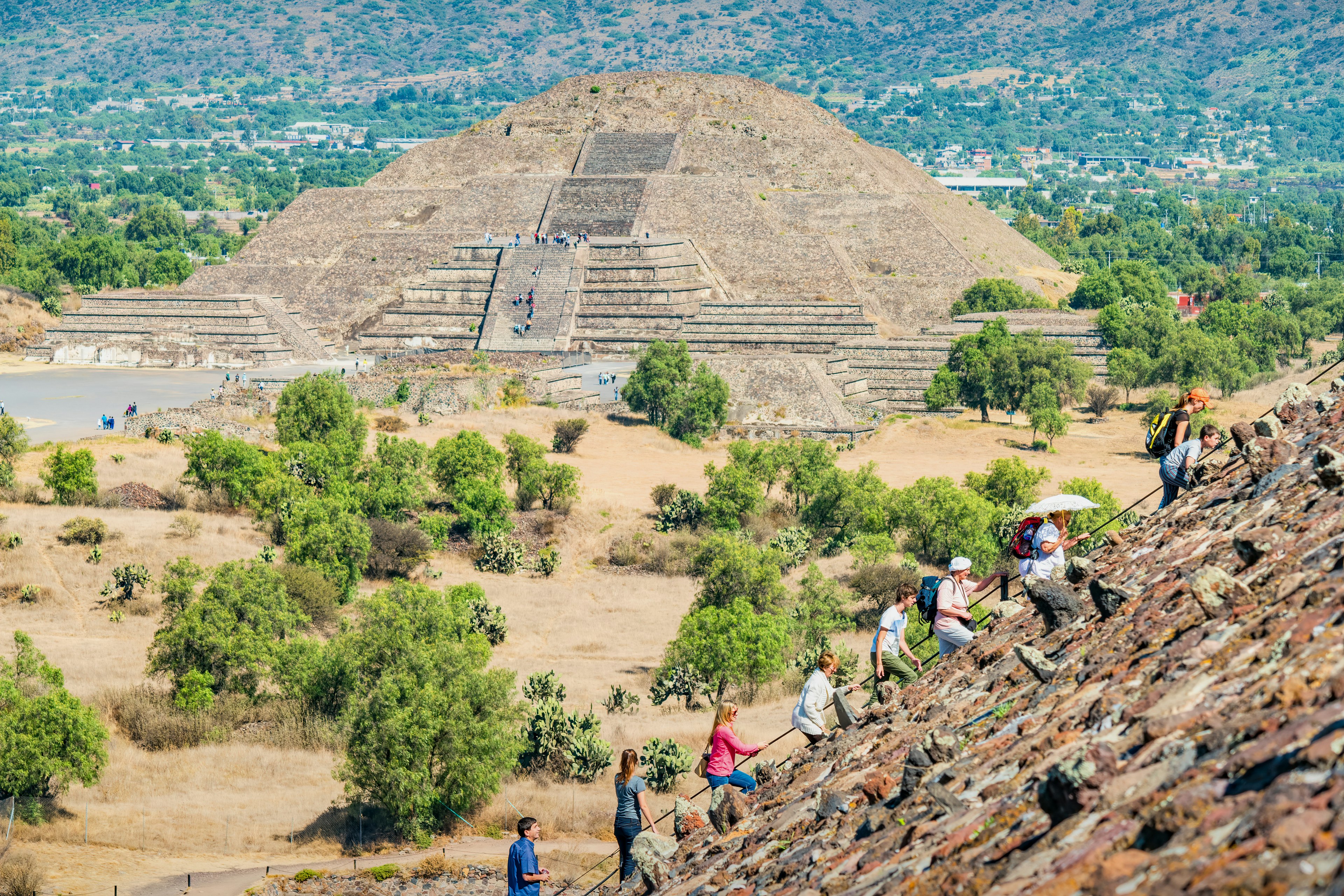Spanning deserts and mountains, jungles and beaches on two tropical shorelines, Mexico is a vibrant country full of incredible culture and home to wonderful people – no wonder it’s so popular with visitors! Being the southern neighbor to the USA, this is also an easy starting point for overland adventures into Central America.
But navigating tourist permits, visas and officialdom can be daunting when you’re headed to a country that feels familiar but has its own way of doing things. Have no fear! Here’s everything you need to know about the entry requirements for Mexico.

Can I travel to Mexico without a visa?
There’s good news for some nationalities. Citizens of the US, Canada, UK, Australia, New Zealand, Japan, most EU member states and many other countries (more than 60 in total) do not require a visa to enter Mexico as tourists. The list includes some nations in Asia and many countries in South and Central America.
The same goes for any visitor, regardless of nationality, who is a permanent resident of, or has a valid visa for the US (including an H1-B visa). Similar rules apply for Canada, the United Kingdom and countries in the Schengen Area or Pacific Alliance.
However, to enter Mexico, all foreign visitors need a passport with at least six months validity and a completed Forma Migratoria Múltiple (FMM), Mexico’s official tourist card.
Where do I get an FMM?
In practice, the paper version of the FMM is gradually being phased out across Mexico and replaced with an online form. However, when needed, hard-copy FMM forms are available at border crossings, international airports and sea ports.
If you’re flying to Mexico, the form will be provided to you on-board your aircraft; the FMM form can also be completed online, printed and presented to immigration officials.
Processing an FMM costs MX$717 Mexican peso (around US$36), which is paid on the spot at land borders and ports, or integrated into the cost of airline tickets.
When you enter Mexico, immigration officials will stamp the FMM or your passport, marking the number of days you’re permitted to stay. Officials can approve up to 180 days but often grant less than this, so be sure to ask for enough time to cover your whole visit.
If you have a paper version of the FMM, you must surrender the document when you leave Mexico, so keep it safe. If you lose it, you’ll face a fine.

Are there any special rules for arriving by land?
Some special rules apply if you’re entering Mexico by land from the USA, Guatemala or Belize – for example, when touring the ancient Mayan sites of the Yucatán Peninsula starting and ending in Cancún.
-
FMMs are free for visitors staying less than seven days.
-
FMMs are not required for visitors who stay less than 72 hours in the “Zona Libre” or “Free Zone” – a designated buffer area extending 20km to 26 km (12 miles to 16 miles) south of the US border.
If you enter Mexico through the Zona Libre and plan to travel beyond its limits, request an FMM form when crossing the border. If you forget, you’ll be stopped when you return to the Zona Libre and made to pay for the FMM. If you exit Mexico from anywhere beyond the Zona Libre, you may be fined if you don’t have an FMM.

What if I need a visa?
If you are not eligible for visa-free entry, you’ll need to apply for a tourist visa in advance to enter Mexico. This applies to citizens of China, India, Russia, South Africa and many other nations. In addition to having a valid passport, you’ll need to submit the following documents in person at the nearest Mexican embassy or consulate:
-
A visa application form.
-
A color passport photograph.
-
Proof of ties to your country of origin (eg, a letter certifying employment or full-time study).
-
Proof of economic solvency (eg, three months of bank statements or other proof of funds).
-
A cash fee of around US$53.
Appointments for tourist visa applications at Mexican embassies and consulates must be booked online through the Secretaría de Relaciones Exteriores.
At the pre-scheduled time, the submitted documents will be reviewed, biometric data collected (photo and fingerprints) and an interview conducted by a consular agent.
Once approved, a tourist visa is valid for up to 180 days. Upon entry to Mexico, travelers with tourist visas must provide an FMM.

Can I extend my stay in Mexico?
With so much to see, it’s no surprise that many visitors wish to extend their stay and see more of Mexico. How you do that will depend on the circumstances of your visit.
If your FMM was issued for less than 180 days, you can request an extension at an immigration office within Mexico.
Be sure to apply before your FMM expires. You’ll need to provide a valid passport, a valid FMM, a valid tourist visa (if you require one) and proof of sufficient funds to cover the length of your stay in Mexico.
If your FMM was issued for 180 days, you’ll need to leave Mexico and re-enter – this triggers the issuance of a new FMM. Many travelers opt to visit a neighboring country for just a couple of days before returning to Mexico.
However, doing this too many times may make border guards suspicious, and you may face additional questions when re-entering.
Travelers with tourist visas should seek an extension (or apply for a new visa) at a Mexican immigration office. Be sure to start the process well before your existing visa expires, as it may take some time to process the paperwork.
Can I take a working holiday in Mexico?
Mexico offers a working holiday visa called the “Visa Temporal – Vacaciones y Trabajo,” allowing certain foreign nationals to accept paid work in Mexico for up to 180 days. The scheme is open to citizens aged 18 to 30 from Canada, Chile, Colombia, France, Germany, New Zealand, Peru and South Korea.
Extensions are not permitted and the visa cannot be converted into a formal work visa. To obtain a working holiday visa, schedule an appointment at your nearest Mexican embassy or consulate via the website of the Secretaría de Relaciones Exteriores.
This article was first published Jun 30, 2021 and updated Oct 25, 2024.

